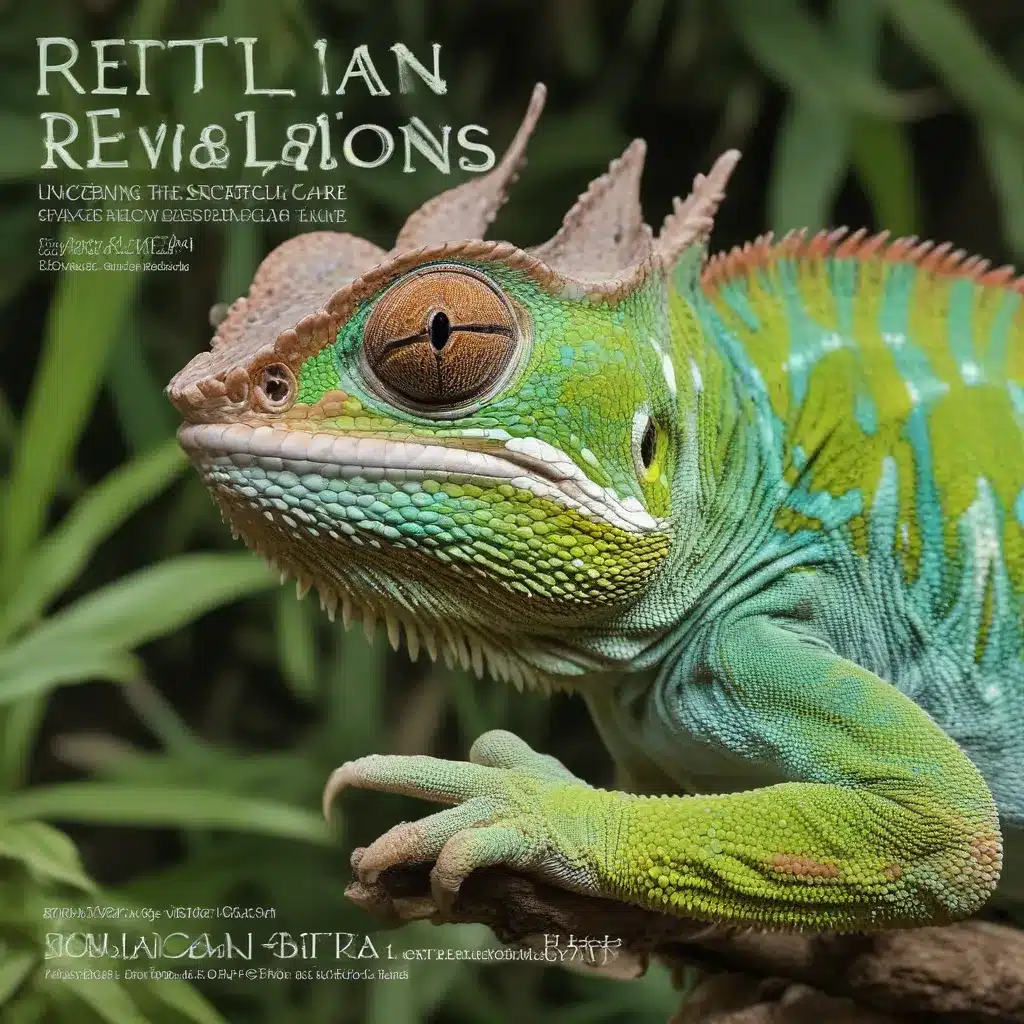
Comprehensive Chameleon Husbandry: Nutrition, Breeding, and Legalities
Keeping exotic chameleons as pets requires a deep understanding of their unique needs and care requirements. From intricate nutrition regimens to responsible breeding practices, maintaining the health and well-being of these remarkable reptiles is a delicate balance. In this comprehensive guide, we’ll explore the ins and outs of successful chameleon husbandry, equipping you with the knowledge to provide exceptional care for these mesmerizing creatures.
Unlocking the Secrets of Chameleon Nutrition
Proper nutrition is the cornerstone of chameleon health and longevity. These insectivorous reptiles have complex dietary needs that must be meticulously addressed. Calcium and vitamin supplementation are crucial elements in ensuring a well-balanced diet. Striking the right balance between calcium and phosphorus is essential, as an imbalance can lead to serious health issues.
Supplementing chameleon diets with the appropriate vitamins and minerals is a nuanced process. Vitamin D3 plays a vital role in calcium absorption, and its supplementation must be carefully managed to avoid toxicity. Likewise, vitamin A requirements can be challenging to meet, as chameleons may have unique capacities to convert certain carotenoids into usable vitamin A.
Experimenting with diverse gutloading techniques and supplementation regimens is key to finding the optimal nutritional balance for your chameleon. By closely monitoring your pet’s health, adjusting feeding schedules, and staying up-to-date with the latest research, you can ensure your chameleon receives the nourishment it needs to thrive.
Responsible Chameleon Breeding: Techniques and Considerations
Breeding exotic chameleons is a rewarding, yet complex endeavor. Successful breeding programs require a deep understanding of species-specific reproductive behaviors, incubation requirements, and post-hatch care. Factors such as temperature, humidity, and lighting must be meticulously controlled to create the ideal environment for breeding and raising healthy offspring.
Careful genetic selection and record-keeping are essential to maintain the health and diversity of captive chameleon populations. Responsible breeders must also consider the ethical implications of their practices, ensuring that any offspring are placed in suitable homes with experienced owners.
Navigating the legal landscape of chameleon breeding and sales is another crucial consideration. Adhering to local and national regulations regarding the ownership, transport, and sale of exotic reptiles is vital to avoid legal complications and ensure the well-being of both the animals and their caretakers.
Legal Compliance and Ethical Considerations
Keeping and breeding exotic chameleons comes with a range of legal and ethical responsibilities. Familiarizing yourself with local, state, and federal regulations regarding the ownership, transport, and sale of these reptiles is essential. Failure to comply with these laws can result in hefty fines or even criminal charges.
Beyond the legal requirements, responsible chameleon enthusiasts must also consider the ethical implications of their actions. Ensuring the health and well-being of their pets, avoiding overbreeding, and providing appropriate living conditions are all crucial considerations that must be at the forefront of any chameleon-keeping endeavor.
Networking with experienced chameleon owners, breeders, and veterinary professionals can help navigate the complex legal and ethical landscape. Staying up-to-date with the latest regulations, industry best practices, and emerging research is key to maintaining the highest standards of care and compliance.
Embracing the Diversity of Chameleon Species
The world of chameleons is a vibrant tapestry, with a diverse array of species, each with its own unique care requirements and breeding considerations. From the diminutive Pygmy Chameleons to the impressive Panther Chameleons, understanding the specific needs of different chameleon species is crucial for their successful captive management.
Carefully researching the habitat preferences, feeding habits, and reproductive behaviors of your chosen chameleon species is essential. Providing the appropriate environmental conditions, feeding regimens, and breeding protocols can mean the difference between a thriving chameleon and one that struggles to adapt to captivity.
Networking with other chameleon enthusiasts, accessing reputable online resources, and consulting with experienced veterinarians can help you navigate the intricacies of caring for your chosen species. By embracing the diversity of chameleons and tailoring your husbandry practices accordingly, you can ensure the long-term health and well-being of these captivating reptiles.
Navigating the Exotic Reptile Industry: Responsible Sourcing and Sales
The exotic reptile industry can be a dizzying landscape, with a wide range of reptile breeders, distributors, and retailers offering a vast array of species. When sourcing chameleons, it’s crucial to work with reputable and responsible providers who prioritize the welfare of their animals and adhere to all relevant legal requirements.
Thoroughly vetting potential sellers, verifying the health and origins of the chameleons, and ensuring proper documentation are all essential steps in responsible sourcing. Engaging with ethical breeders who follow best practices in captive breeding and maintain detailed records can help ensure the long-term success of your chameleon ownership.
For those interested in selling or rehoming chameleons, it’s vital to understand and comply with all applicable laws and regulations. Adhering to responsible sales practices, providing comprehensive care information to new owners, and screening potential buyers can help prevent the exploitation of these remarkable reptiles.
By navigating the exotic reptile industry with care and diligence, chameleon enthusiasts can contribute to the responsible stewardship of these captivating creatures, ensuring their well-being and the sustainability of the hobby.
Conclusion: Embracing the Chameleon’s Captivating World
Keeping and breeding exotic chameleons is a rewarding and intricate endeavor that requires a deep understanding of their unique needs and the legal and ethical considerations that come with it. By mastering the art of chameleon husbandry, from comprehensive nutrition to responsible breeding practices, and navigating the complexities of the exotic reptile industry, you can become a champion for the well-being of these mesmerizing creatures.
Embrace the diversity of chameleon species, stay up-to-date with the latest research and best practices, and forge connections with fellow enthusiasts and experts. Together, we can work towards a future where exotic chameleons thrive in captivity and in the wild, inspiring wonder and respect for these captivating reptiles.
Explore our website to discover a world of captivating chameleons and unlock the secrets to their successful care and breeding.


